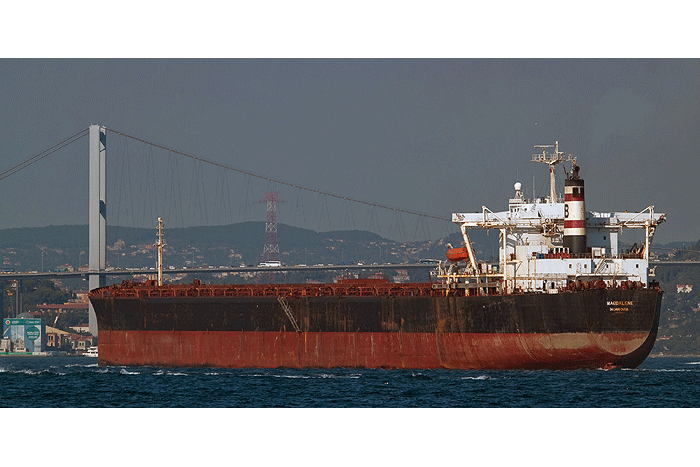The penalty was handed down in December last year, but details of the case have only just come to light.
The 149,530-dwt Magdalene (built 1989) unintentionally discharged 72,000 litres of HFO in the port of Newcastle on 23 August 2010.
In addition to the fine the shipowner has already paid AUD 1.7m in clean up costs and has been ordered to pay the prosecution’s costs.
Prior to the spill, the vessel had ballasted and taken up 376-cbm of ballast water into the No 6 starboard double bottom ballast tank, in accordance with her usual ballasting procedures.
The case reported by the Sydney based Norton White law firm has been highlighted by the Skuld P&I club in an advisory bulletin to members “as an example of a case where the shipowner did everything right but still got fined,” according to Christian Ott at Skuld.
Norton White partner, Nathan Cecil, said the spill occurred during deballasting of the No 6 starboard double bottom ballast tank during loading operations at Kooragang Berth No 4.
Oil was reportedly observed on the surface of the water in the vicinity of the vessel and all operations were ordered to be immediately ceased.
The law firm said that subsequent investigations determined that fuel oil had leaked into the ballast tank through a 15mm hole in the internal transverse bulkhead between the ballast and HFO tanks.
It was accepted that oil would have leaked into the ballast tank over an extended period of time between the last scheduled inspection on 27 February 2010 and the ballasting and deballasting in August 2010.
Prior to the ballasting and deballasting, the No 6 starboard double bottom ballast tank had not been used for at least two months.
The prosecutor reportedly alleged that the owners were negligent in not properly sounding and/or inspecting the ballast tank prior to deballasting having thought it to be empty prior to taking on and then discharging ballast.
They also alleged that because the sounding pipes on the vessel did not have perforations, manual sounding would not have detected the presence of oil floating on top of the ballast water and additional vigilance was therefore required on the part of the master and crew.
The prosecutor further alleged that, as the ballast tank had not been used for some time, a thorough visual inspection was prudent before it was used, which was not done.
However, the judge accepted the argument that the owners conducted ordinary and reasonable yearly inspections of the ballast tanks and no inspection had found any evidence of substantial unremedied bulkhead deterioration or any other potential cause of contamination of the ballast tanks.
Accordingly the judge accepted that the owners had no reason to suspect the contamination of the ballast tank and had conducted the ballasting and deballasting operations in accordance with proper practice.
The court effectively accepted that the owners conducted themselves at all times in accordance with good and proper practice and could not be blamed for the spill.
A spokesman for the shipowner underlined that the fine was imposed “despite the owners co-operating fully both during the spill and clean up as well as during the court case.”
However, owing to the sheer size of the spill and the substantial damage that was caused to the surrounding environment, the court still felt compelled to impose quite a substantial fine.
Nathan White said the latter point in particular proves the utility in owners conducting themselves “responsibly and transparently” in response to any spill, no matter how large or small, and making the effort to present the court with all available arguments in mitigation of the fine.




